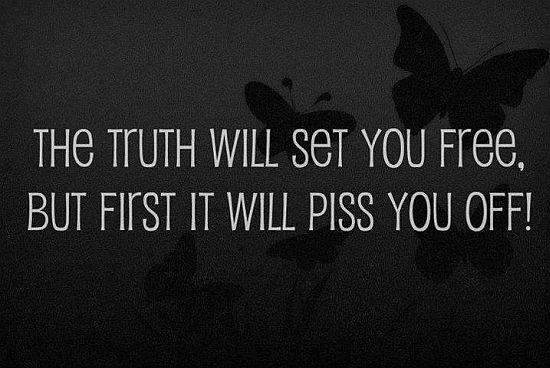Advertisement
What to Say to People who aren’t Good Enough
Sincerely, sometimes, some people are not good enough. They simply suck at some stuff and they need to improve or even quit.
Any feedback, positive or negative, is always a good idea. The problem emerges when people mistake criticism for feedback. Giving a ‘constructive’ feedback is always recommended. Using factual words and constructive words at the same time as used in this phrase ‘not good enough’ should be avoided. This is because giving someone a negative feedback that they cannot act on is completely unnecessary.
“Don’t tell a man that he is a sinner; tell him he can be a saint. One shows the lack of faith in him, and the other our faith in him. ”
– Swami Vivekananda
Telling someone he is an asshole is criticism. Telling them why they behaved like assholes and how they can behave more professionally in the future, or else, is a constructive feedback. In the work world, people may not be good enough to meet a certain standard. That is a reality. But we should point to performance, not the person. Oftentimes, people choose not to be good enough, whereas, they can be better.
How Best to Approach Someone who isn’t Good Enough
There’s a difference between the truth and trying to put someone down. You can tell someone that they aren’t good enough and then have something worse come out of it, which is having them tell themselves that they aren’t good enough. The negativity it creates simply impairs growth in that area. It demotivates and leads to inferiority complex.
Even if I definitely think that we all have to take responsibility for our shortcomings, I also agree that there are ways of bringing people to realize or/and admit their own weaknesses. The way we express things matters a lot. You may make this person prone to self-destruct mode eventually, especially if the person is weak-minded or has a low self-esteem.
Advertisement
There are areas that people excel at and others that they need to work on. Good leadership stresses on those good areas and gives motivation to improve on the weak areas. We are humans and we need to respect people’s skills, strengths, and weaknesses and not make them feel invaluable. That could be a huge mistake that would affect our growth in the long run.
The truth is always the best way. In that spirit, telling someone that they aren’t good enough to operate equipment safely, or drive because they lack experience can prove to be beneficial to everyone involved, but it can also tune others down. So if we were to say, “Your interest in the field is admirable, so if you have any trouble coping in this (particular) area, I am ready to help you grow”, it takes the situation to another level where we can actually nurture a professional in their field of interest and improve value on both ends.
Summarily
Rarely is anyone good enough without the experience and knowledge required to be successful. The bottomline is that if you tell someone they aren’t good enough, point them in the right direction to be good enough, and encourage them accordingly. We all start out ignorant and inexperienced. Keep that in mind when coaching and mentoring.
We must always politely and privately help one another by highlighting one another’s weaknesses/areas for improvement. We learn every day and gain absolutely nothing from destroying another person’s self-confidence. You can tell people they didn’t do well enough, but not they are not good enough.
If someone is not good enough at something, telling them what they are not good at and how to improve is always a good thing. Same goes for appraisal and compliments.
Advertisement





